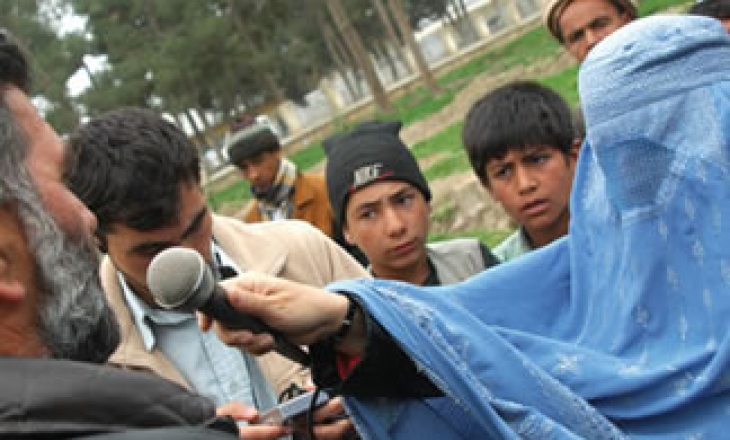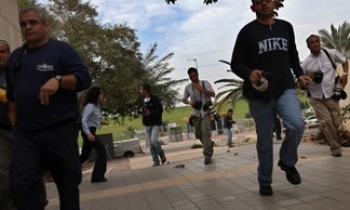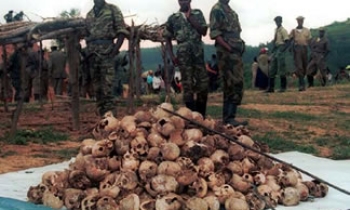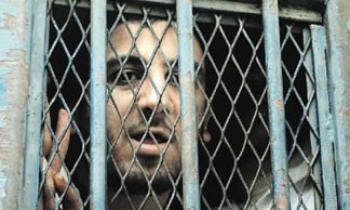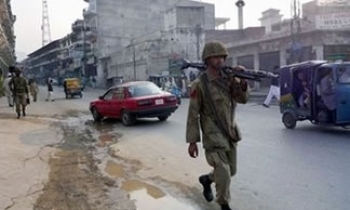Press freedom organisations have expressed outrage at the campaign being waged by the Afghanistan ministry of information and culture, the lower house of Parliament and the Council of Ulemas against privately-owned TV stations, especially Tolo TV, for broadcasting footage of men and women dancing together.
The Council of Ulemas and the information and culture ministry announced on March 30 that the broadcasting of some Indian films and TV series, regarded as anti-Islamic, was to be banned by April 14. The Afghan media received a note from the information and culture ministry supporting these bans. It named three series that TV stations were no longer to broadcast: 'Kamkam' (on the Ariyana television station), 'Emtahan Zendehghi et Zamane Khosho Ham Haros Bud' (on Tolo TV) and 'Dar Entezar' (on Noorin).
The day before, the information and culture ministry issued a release condemning a programme the previous day on Tolo TV showing men and women dancing together. This was "against the beliefs and traditions of Afghanistan’s Islamic society," the ministry said. A Tolo TV representative told Paris-based Reporters sans Frontières (RSF) that in the programme (a re-transmission of the "Afghan Oscars"), most of the women had their heads covered, and that the movements of the dancers were "very restrained."
Tolo TV representatives were summoned to appear before the parliament’s Media Commission on March 30 at the ministry’s request. They argued that programmes showing dancers were not unusual on Afghan television, including the state TV channel, and that the dance sequence that caused controversy was taken from a film that had been approved by the Afghan film board.
The lower house of parliament (Wolesi Jirga) adopted a resolution Monday ordering the Afghan media to stop carrying "sensual" images (mobtazal) and saying foreign dancers should no longer be invited to Afghanistan. It also told the media to stop carrying advertising for banks offering loans on which interest is payable. However, it postponed the decision on a proposal to ban all singing and dancing by women on television.
Conservative parliamentarians were very critical of Tolo TV, and former warlord Abdul Rab-Rasoul Sayyaf called for the station to be banned. "Tolo conspires on behalf of foreigners," he said. "I already said this two years ago and no one took me seriously although I provided the government with evidence." Other parliamentarians, including Fawzia Kufi, who represents the province of Badakhshan, condemned these alleged violations of press freedom.
The Council of Ulemas already asked President Hamid Karzai in January to ban Tolo TV and other private TV stations on the grounds that they were anti-Islamic.
"It is regrettable that, through the ministry of information and culture, the government is supporting a campaign launched by fundamentalists against privately-owned TV stations," RSF said. "How does the broadcasting of such images harm Afghan culture?"
“This form of censorship is only going to increase the pressure on Afghan media to present only a certain type of images and we fear this could lead to further self-censorship,” said International Federation of Journalists (IFJ) General Secretary Aidan White.
RSF said, "We urge information and culture minister Abdulkarim Khoram to take back what he has said and to stop interfering in Afghan television content. We express our full support for Tolo TV, to which we gave an award in 2005 for its commitment to free expression."
Meanwhile, leading writer and journalist Rahnaward Zaryab appears to have escaped a murder attempt on March 29 when an armed man approaching his home in the Kabul district of Makrooyan was chased away by neighbours.
Two journalists are currently detained in Afghanistan. One is Sayed Parvez Kambakhsh, now held in Kabul after being sentenced to death by a court in the northern city of Mazar-i-Sharif. The other is Jawed Ahmad, a journalist working for Canadian Television (CTV), who is being held by the US military at Bagram airbase, north of Kabul.
“There is a clear danger for media workers in Afghanistan who attempt to do independent reporting,” White said. “While this resolution may not be aimed at journalists, we fear that it could open the door to further legal pressure and illegal attacks on journalists.”

